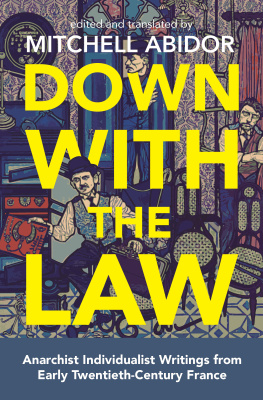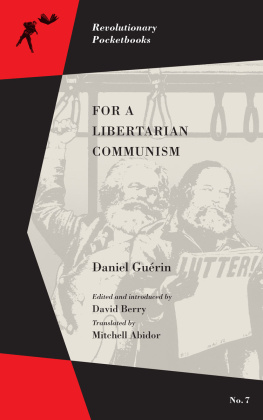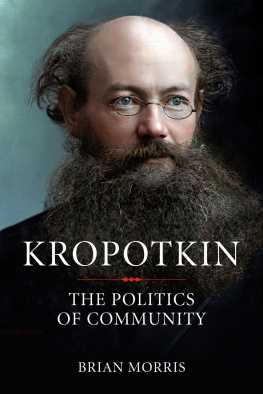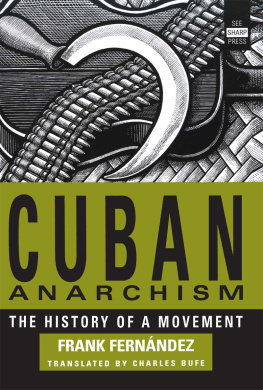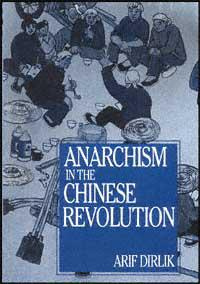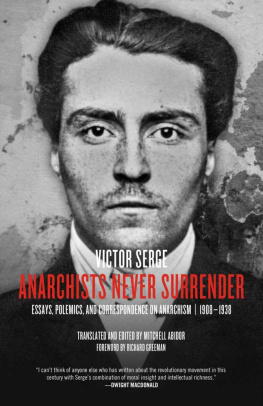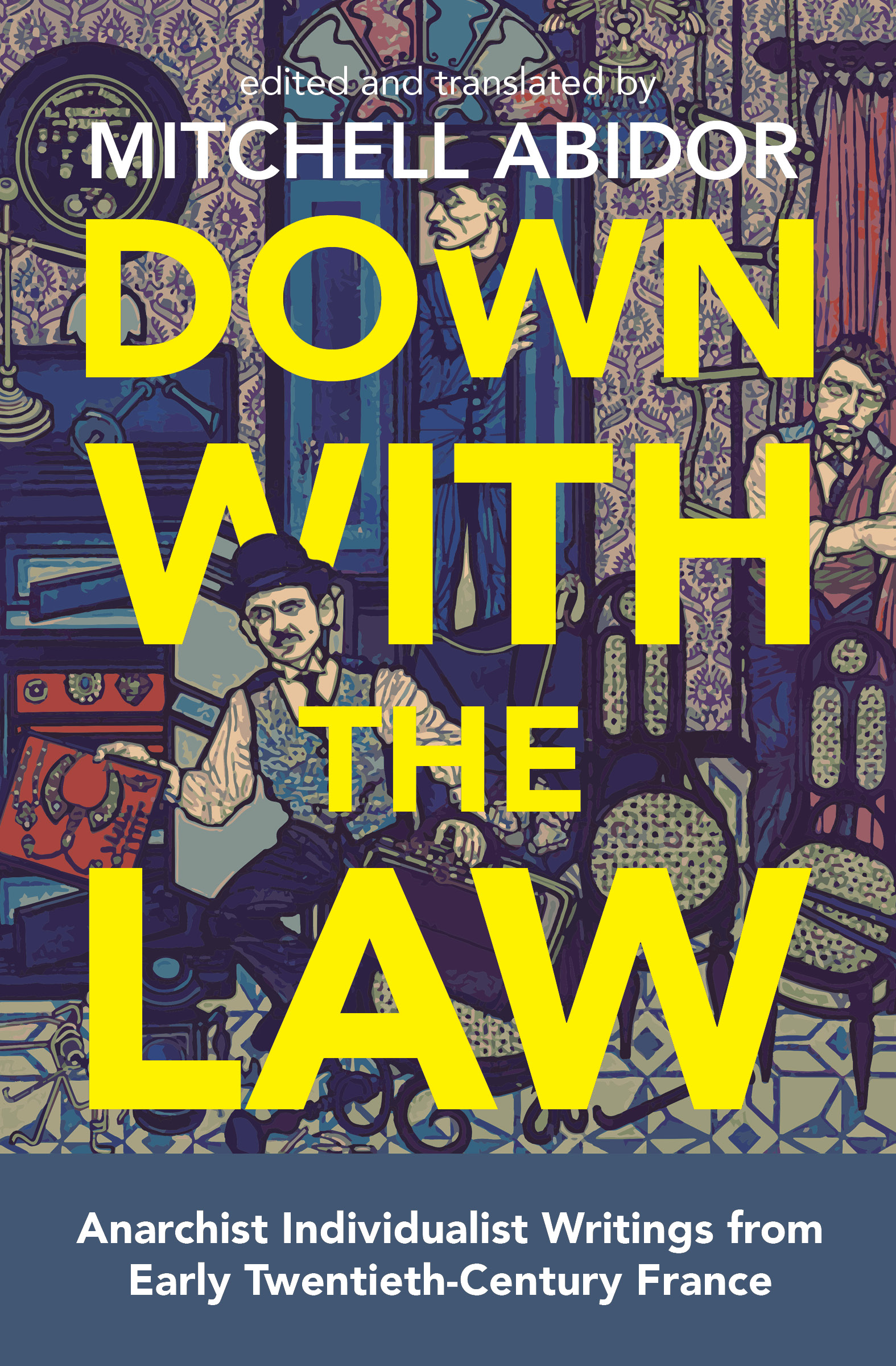Introduction
It is perhaps ironic that France, the country of great mass revolutions, of 1789, of 1830, of 1848, of the Commune of 1871, of the Popular Front strikes of 1936 and the uprising of May 1968, gave birth to the most diverse and influential group of anarchist individualist thinkers, writers, and militants. Or perhaps it is precisely because of Frances revolutionary history that individualism took such firm root. If we examine the countrys revolutions and mass movements, what is abundantly clear is that for all its revolutionary fervor, for all the bloodshed and sacrifice, in every case the revolution either served the interests of people other than the workers who made them, or were bloody failures that set the movement bac k decades.
This failure of the revolutions and mass organizations up to the end of the nineteenth century led to two diametrically opposed reactions among anarchists. On the one hand, there were those who, rather than lose heart and faith in the mass movement, flocked to the revolutionary wing of the Left, particularly syndicalism. For these militants the error was not believing in mass activity, but carrying it out incorrectly. For these people the revolution remained a distinct possibility that would occur in the not-too-distant future. This current included men such as mile Pouget, editor of Le Pre Peinard , a newspaper written in popular slang and advocating direct action by the workers, most notably through sabotage. This rebirth of the revolutionary far Left in fin-de-sicle France was the main reason the age of the bomb throwers, of Ravachol, mile Henry, and August Vaillant, ended so abruptly in 1894: these men had hoped to inspire a mass movement, and once that movement appearedinspired by them or notcontinuing their campaign of terror was unn ecessary.
On the other hand, there were those who believed there was no hope for revolution, that the masses, timid, cowed, and uneducated, would never be able to overthrow their masters, or at least not until a long period of education had occurred. Anarchist individualism critiqued the revolutionary illusion, an alternative to the apparently futile attempts to change the world, to the sacrificing of present generations to hypothetical future ones. Anarchist individualists turned things on their head and posited the possibility of liberation today, a liberation within the reach of all at this ver y moment.
These diametrically opposed positions appealed to equally diametrically opposed types. It has been proposed that the split in the two movements was in large part generational, with older, more serious types, such as Kropotkin, Malatesta, the Reclus brothers, and Sbastien Faure supporting a mass-based or at least more humanist version of anarchism, while young hotheads such as Albert Libertad, mile Armand, and Andr Lorulot favored the more uncompromising individualist trend, one that would cause anarchy within anarchy and that would forever battle on two fronts: against a rotten society they hated and against a worm-ridden anarchist ship too timid to effect any real change. And, as we will see, a third front also existed: a civil war among individualists, one that would result in the virtual disappearance of the movement as a viable force just before Wo rld War I.
Anarchist individualism can briefly be summed up as a theory that revolves around the absolute primacy of the individual, and not just that of the abstract individual, but of my primacy, of my absolute right to define what is good, to refuse any laws and constraints imposed from without, of my duty to myself alone. As the scholar Marie-Josephe Dhavernas wrote, Individualists give the word freedom the sense of the maximum realization by each of his own tendencies and needs, of his own internal laws opposed to the external laws imposed by society. Or as Henri Zisly, an early anarchist individualist, said in the pages of its main organ, lanarchie : To be an anarchist means absolutely living outside established laws; its wanting to follow the pure theory, to not work for a boss. Its being completely free of bourgeois prejudices; its being a supporter of violent methods of social struggle.
Such an idea leaves itself open to the widest variations, from those who, like Victor Serge in A Head Will Fall, included below, justify killing, to those like Han Ryner, who lays out a gentler, more philosophical version in his Mini-Manual of Indivi dualism.
What differentiates anarchist individualism from virtually every other revolutionary school is its refusal of textual authority: everyone has a right to develop their own ideas, without the support of any canonical texts. The ferocious Albert Libertad had no use for Ryners version of anarchism, one inspired by the Stoics and the Cynics, but he could only attack it for what it was, not because it deviated from any line or contradicted an element of the vulgate. The individualists didnt throw different interpretations of their founding father Max Stirner at each other, since quoting anyone, allowing anyone to serve as an authority, constituted an abandonment of the individuals autonomy.
In addition, one will search in vain for anything resembling an economic analysis of reality. Economic forces play no part in anarchist individualism: the individual is either free by his or her own choice or a slave by his or her own choice. Class struggle is simply not part of the equation. How the bourgeoisie assumed power is not an issue that will ever be addressed by individualists because it assumes there is something greater than the individual. If there is any force that restricts the activities of an individual it is the biological: a strict biological determinism was a common feature of the movement, and only ones biological predispositions could prevent one from fully being the person one is supposed to be. So, it is not Karl Marx who mattered to them, but the all-but-forgotten (nonanarchist) biologist Flix Le Dantec. After all, one of Le Dantecs most important books was titled Egoism, the Basis for Every Society: A Study of the Deformations Resulting from Life in Common .
Of course, there are philosophers, in particular Max Stirner and Friedrich Nietzsche, who exerted a tremendous influence on anarchist individualists of all stripes. These two writers were just becoming known in France around the turn of the twentieth century, thanks in both cases to the remarkable literary journal La Revue Blanche . Stirners insistence on the Self, on the all-importance and total liberty of the individual, can be found beneath every word written by the individualists, though he is seldom cited. And not because they were all plagiarists: his ideas were theirs, and vice versa. In many ways, individualism is more an attitude than a philosophy, and Stirners writings were the first to give that attitude a philosophical basis, one that would be attacked by Marx in The German Ideology .
Nietzsches case was similar, though some anarchist individualists, particularly Victor Serge as he was beginning to exit from individualism following his release in 1917 after being imprisoned for supposedly participating in the depredations of the Bonnot Gang, saw the dangers in Nietzscheism. Insofar as Nietzsche sought a transvaluation of all values and insisted on living a life free of constraints, free of the herd and of slave morality, he was an anarchist individualist avant la lettre , and this was the Nietzsche they admired. They tended to leave to the side the Nietzsche of the blond beast, the Nietzsche who glorified military virtues. But again, if we view anarchist individualism as an attitude, Nietzsche was on e of them.

